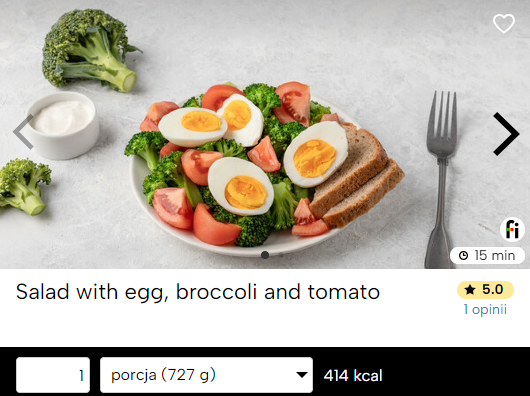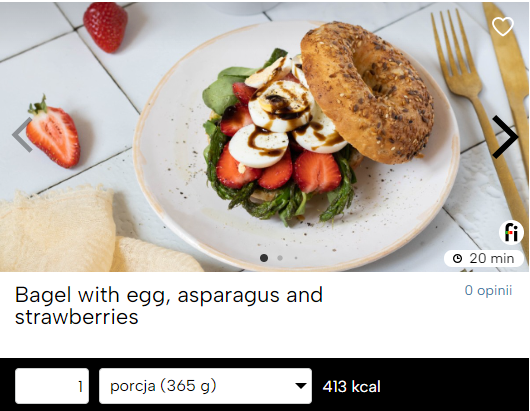Eggs – are they worth eating?

What is the nutritional value of eggs and their impact on health? Let’s take a closer look at why eggs stir so much emotion, whether eating eggs can really affect the risk of developing cardiovascular diseases? Or perhaps moderation and a varied diet are the keys? We invite you to read the article that sheds light on these and other issues, presenting current scientific research findings. In the end, we will answer the question of whether it’s really worth eating eggs.
Eggs have long been a staple in the diets of many cultures, valued for their unique nutritional profile and versatility in the kitchen. On one hand, they are praised for their high nutritional value. On the other, the debate about their impact on cholesterol levels in the body continues.
Eggs – nutritional values
Calorific value and macros
Eggs are highly nutritious, a standard piece weighing 60 g provides 84 kcal. The protein in chicken eggs is highly absorbable in the human body. It is called a reference protein because it provides all the essential amino acids in the right amount. This is important because the body cannot produce such amino acids itself and they must be supplied with the diet. Besides protein, eggs also supply fats and negligible amounts of carbohydrates to the diet. Egg proteins mainly provide protein and are low in calories, while the yolks mainly provide fat, including saturated fatty acids as well as cholesterol and phospholipids.
Vitamins and minerals
Vitamins and minerals are mainly found in the yolk. Among the minerals, eggs supply: potassium, calcium, magnesium, iron, zinc, copper, and iodine. Additionally, eggs contain significant amounts of phosphorus, making them acidifying. It is, therefore, advisable to consume eggs with vegetables to neutralize their acid-forming character. Eggs contain significant amounts of vitamin A, but also B vitamins and vitamin D.
Cholesterol
Eggs are an animal product, so they also supply dietary cholesterol. One egg provides 216 mg of cholesterol. This is a lot, especially since, according to the Nutritional Guidelines for the Polish population, one should not exceed 300 mg of dietary cholesterol per day in the case of healthy individuals. Individuals with chronic illnesses such as obesity or other metabolic disorders should not exceed 200 mg. It is the high content of this component that causes much controversy regarding egg consumption.

Dietary cholesterol vs. blood cholesterol
To understand the ambiguities concerning eggs and cholesterol, it is important to distinguish between two concepts. Dietary cholesterol is not the same as so-called “blood cholesterol.”
Dietary cholesterol
The cholesterol found in an egg and consumed is dietary cholesterol. This component is found in most animal products, including meat, fish, seafood, dairy, and cold cuts. The human body can produce cholesterol on its own, so it is not a component that must be supplied with the diet.
Blood cholesterol
During blood tests, cholesterol levels are checked. However, this is not the same as cholesterol consumed with food. The term blood cholesterol is not correct because blood contains cholesterol molecules combined with protein – lipoproteins. Cholesterol does not dissolve in water, so it also does not dissolve in blood. Different lipoproteins can be found in the circulatory system, e.g., low-density lipoproteins LDL – commonly known as “bad cholesterol” and high-density lipoproteins HDL – known as “good cholesterol.”
Eggs – impact on health
The impact of cholesterol on the cardiovascular system
In 2019, cohort studies were published examining the association between egg or cholesterol consumption and the incidence of cardiovascular diseases and overall mortality. The study involved 29,615 citizens of the United States, with observations lasting over 17 years. The authors of the study indicate that an additional intake of 300 mg of cholesterol per day is associated with a 17% increase in the risk of cardiovascular incidents and an 18% increase in deaths from various causes. Consuming an additional half an egg per day was associated with a 6% increase in the risk of cardiovascular events and an 8% increase in deaths. However, this study does not analyze lifestyle and consumption of other components that are harmful to heart health, such as saturated fatty acids. In the diet, cholesterol is not supplied only by eggs but also by meat and fatty dairy.
Does everyone react the same to dietary cholesterol?
It turns out that not everyone significantly increases their total cholesterol and LDL cholesterol levels in the blood after consuming dietary cholesterol. Why is that? Genetics are responsible. Some are more sensitive to its consumption, and in such individuals, even one egg can significantly raise the LDL fraction. However, in the rest of the population, who are not sensitive to cholesterol consumption, this level slightly increases. For this reason, the best solution is to maintain a healthy balance. Genetic testing is expensive and not accessible to most of the population. It’s better to limit egg consumption to a few, not several, per week.
Metabolic diseases
A meta-analysis conducted in 2017 indicated that eating 1 egg per day in type 2 diabetes is safe and does not significantly impact the development of cardiovascular diseases. However, it should be emphasized that a healthy lifestyle, i.e., not smoking, engaging in physical activity, and a healthy diet based on high fiber intake and limiting saturated fatty acids, has the greatest impact on cardiovascular system health. Therefore, consuming 1 egg per day may be safe if the person leads a healthy lifestyle.
Gut microbiota
The latest research regarding eggs and their impact on the gut microbiota is not yet clear. It has been established that a metabolite, which is formed in the intestines after consuming eggs, specifically choline found in eggs, is trimethylamine N-oxide (TMAO). Excessive presence of TMAO is associated with a higher chance of developing cardiovascular diseases. However, there are also studies suggesting that in people with a low cardiovascular risk, egg consumption improved the functioning of the gut flora. This significant improvement had a further positive impact on greater blood vessel flow. The topic certainly requires further attention and research to definitively determine the impact of eggs on the microbiome.
Eggs in the daily diet
Despite everything, eggs are a valuable product and worth including in the diet. Due to the content of fat and dietary cholesterol, it is necessary to exercise moderation in their quantities. A few eggs a week in the case of healthy individuals should not increase the risk of cardiovascular diseases. It’s best to limit them to 3-4 eggs per week. However, if you are dealing with metabolic diseases such as type 2 diabetes, obesity, insulin resistance, or dyslipidemia, it’s worth limiting the amount of cholesterol and saturated fatty acids in the diet, including eggs, and focus on leading a healthy lifestyle. It’s best to consult a dietitian, specialist doctor, and establish an individual dietary plan.
Recipes from the Fitatu® app with eggs in the lead role
Eggs should be eaten alongside products that have a particularly beneficial effect in the body due to their high dietary fiber content. Such meals are rich in vegetables, grains, or wholemeal bread. Discover our high-fiber dishes.



Fitatu® Support Group
Reaching your goal is easier with the support of others! Join our Fitatu Facebook group and achieve your goals together with other Fitatu® app users. With the group members, you can share your results every day and motivate each other to keep going.
Fitatu® App
Not yet familiar with Fitatu®? Download the app from the Play Store or Apple Store and start taking charge of your health with us! Do you want to have access to all the features? Go for Fitatu® Premium! For blog readers, we have a special discount code: EGGS-4X . Go to https://www.fitatu.com/app/order-and-payment and claim a 20% discount on Fitatu® Premium annual plans. The code combines with other promotions.
What else can you find in Fitatu® Premium?
- Over 2,000 recipes plus dozens of new ones every month,
- additional intermittent fasting plans,
- possibility to create shopping lists,
- 6 pre-prepared meal menus,
- filtering of products and recipes,
- more synchronization with fitness apps,
- access to the app in the web version,
- no adverts!
Bibliography:
- Hanna Kunachowicz i in. (2020). “Tabele składu i wartości odżywczej żywności”. PZWL.
- Mirosław Jarosz i in. (2020). “Normy żywienia dla populacji Polski i ich zastosowanie”. Narodowy Instytut Zdrowia Publicznego – Państwowy Zakład Higieny
- Helena Ciborowska i in. (2018). “Dietetyka. Żywienie człowieka zdrowego i chorego”. PZWL
- https://ncez.pzh.gov.pl/abc-zywienia/czy-jajka-podwyzszaja-poziom-cholesterolu-we-krwi/
- Zhong VW, Van Horn L, Cornelis MC, et al. Associations of Dietary Cholesterol or Egg Consumption With Incident Cardiovascular Disease and Mortality. JAMA. 2019;321(11):1081–1095. doi:10.1001/jama.2019.1572
- Rouhani MH, Rashidi-Pourfard N, Salehi-Abargouei A, Karimi M, Haghighatdoost F. Effects of Egg Consumption on Blood Lipids: A Systematic Review and Meta-Analysis of Randomized Clinical Trials. J Am Coll Nutr. 2017;5724(November):1-12. doi:10.1080/07315724.2017.1366878
- Wang X, Son M, Meram C, Wu J. Mechanism and Potential of Egg Consumption and Egg Bioactive Components on Type-2 Diabetes. Nutrients. 2019 Feb 8;11(2):357. doi: 10.3390/nu11020357. PMID: 30744071; PMCID: PMC6413102.
- Chrysant SG, Chrysant GS. The Debate Over Egg Consumption and Incident Cardiovascular Disease. Cardiol Rev. 2021 Sep-Oct 01;29(5):238-244. doi: 10.1097/CRD.0000000000000325. PMID: 32956166.
- Liu X, Shao Y, Sun J, Tu J, Wang Z, Tao J, Chen J. Egg consumption improves vascular and gut microbiota function without increasing inflammatory, metabolic, and oxidative stress markers. Food Sci Nutr. 2021 Nov 30;10(1):295-304. doi: 10.1002/fsn3.2671. PMID: 35035930; PMCID: PMC8751450.





